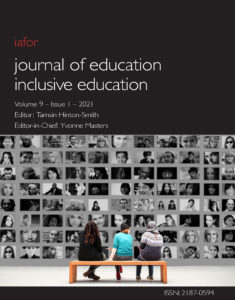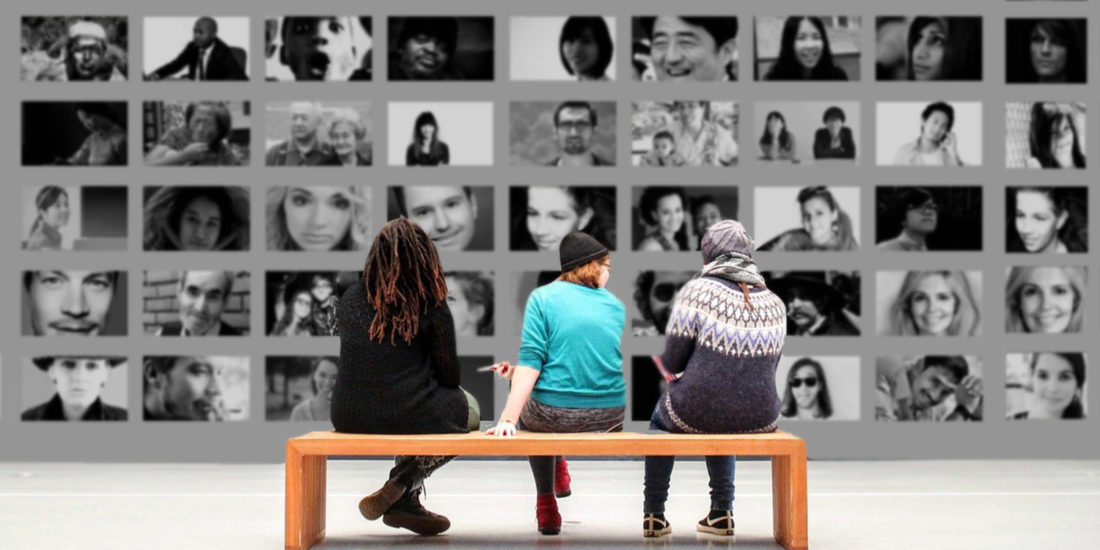 Welcome to the IAFOR Journal of Education: Inclusive Education. What a journey it has been. It has been an immense privilege to work with a team of international colleagues so committed to increasing the inclusivity of educational opportunities, experiences and outcomes within their diverse contexts. This issue would not have been possible without all of the wonderful contributions from submitting authors, the expertise of our team of international reviewers, and the editorial teams for the issue and wider IAFOR journal. When we got together as an editorial team for this issue, one of our priorities was that this special issue should live up to the values of its focus. We know that minority world researchers are under-represented in international journal authorship and we did not want that to happen here. We are overjoyed to have worked on bringing this collection with researchers and research contexts including Cyprus, Germany, Malawi, Malaysia, Malta, Nigeria, the Philippines, and Spain.
Welcome to the IAFOR Journal of Education: Inclusive Education. What a journey it has been. It has been an immense privilege to work with a team of international colleagues so committed to increasing the inclusivity of educational opportunities, experiences and outcomes within their diverse contexts. This issue would not have been possible without all of the wonderful contributions from submitting authors, the expertise of our team of international reviewers, and the editorial teams for the issue and wider IAFOR journal. When we got together as an editorial team for this issue, one of our priorities was that this special issue should live up to the values of its focus. We know that minority world researchers are under-represented in international journal authorship and we did not want that to happen here. We are overjoyed to have worked on bringing this collection with researchers and research contexts including Cyprus, Germany, Malawi, Malaysia, Malta, Nigeria, the Philippines, and Spain.
The field of inclusive education encompasses a vast spread of issues and experiences globally, as testified by the array of submissions we have received for this issue. This issue addresses the inclusivity of pedagogic and curricula practices in learning contexts from mainstream and special needs from nursery through to secondary education, to university students and employability. Articles explore the inclusivity of education experiences for diverse groups that include foreign language learners; adolescent mothers; and autistic spectrum learners. Authors draw on insights from diverse intentional theorists of the social role of education, from Freire, to Bourdieu. Articles explore themes and problematise concepts including multicultural education, democracy, equality, justice, citizenship, meritocracy, human capital, inclusion as corporate social responsibility, and the potential of robotics to further special needs inclusion. Experiences of educators and educated are explored through multiple quantitative and qualitative research approaches from cross-national quantitative analysis across 52 countries, through to in-depth case study and narrative approaches utilising teacher and learner surveys, interviews, and classroom observation.
Article 1
Corporate social responsibility programs are examined through a case study approach by Azhar and Azman in their article, “School’s Perspectives on Educational Programmes under Corporate Social Responsibility Initiatives. Case Study: Malaysia.” The article explores both the benefits and the challenges from a school's perspective, and from the perspective of students from at-risk backgrounds.
https://doi.org/10.22492/ije.9.1.01
Article 2
Steve Entrich’s “Understanding Cross-National Differences in Inclusive Education Coverage: An Empirical Analysis” analyses cross-national differences in inclusive education approaches in over 50 societies. His research identifies the extent to which educational inclusion in different national education systems is affected by the definition of special educational needs (SEN) in each national context.
https://doi.org/10.22492/ije.9.1.02
Article 3
Ryan Gatbonton’s “Educational Experiences of Adolescent Mothers while Studying College in the Philippines” uses reflective journals to develop understanding around vulnerabilities, potential and determination in the lived experiences of this group of learners, as they navigate educational journeys amongst new parenting responsibilities, social stigma, and further challenges such as domestic abuse.
https://doi.org/10.22492/ije.9.1.03
Article 4
“Students call me ‘Arap’ which means slave in Turkish language” – Chinaza Solomon Ironsi identifies inequalities that include around workload, promotional opportunities, and respect from students; in his research on experiences of “African Immigrant Teachers Teaching Young EFL learners: A Racial Discrimination Study.”
https://doi.org/10.22492/ije.9.1.04
Article 5
Contemporary research often considers the use of robotics in enhancing social skills among children with autism spectrum disorder. This approach is the focus of “Exploring the Potential of Robotics in Supporting Children with Autism Spectrum Disorder” within the context of the Philippines. Mostajo, Legaspe, Camarse, and Salva have utilized a systematic literature review to identify significant studies in this field.
https://doi.org/10.22492/ije.9.1.05
Article 6
In “Exploring Implementation of National Special Needs Education Policy Guidelines in Private Secondary Schools,” Mbewe, Kamchedzera and Kunkwenzu focus on the National Special Needs Education Policy Guidelines (NSNEPG) in Malawi that was first implemented in 2009. They use a phenomenological methodology, identifying a lack of knowledge, resources and insufficient support for learners with SEN. They stress that communication with school stakeholders is key for the effective implementation of the policy guidelines in this context.
https://doi.org/10.22492/ije.9.1.06
Article 7
In, “Engaging, Affirming, and Nurturing Inclusive Environment: A Grounded Theory Study in the Philippine Context,” by Raguidin, Custodio and Bulusan, the authors set out to develop a contemporary framework which will enhance understanding regarding inclusive environments within the Philippine setting.
https://doi.org/10.22492/ije.9.1.07
Article 8
In “Employability and Inclusion of Non-traditional University Students: Limitations and Challenges,” Maria Tenorio-Rodriguez explores experiences and impact of inequalities in opportunities to develop employability skills in Spain, identifying the tension between neoliberal and transformative agendas for higher education.
https://doi.org/10.22492/ije.9.1.08
Article 9
Jacqueline Zammit’s “Maltese Educators’ Perceptions and Good Practice in Multicultural Education” takes a qualitative case study approach to exploring Maltese teachers’ understandings around taking a multicultural approach to teaching Maltese as a second language to learners from immigrant backgrounds. This is a relatively new space as teaching Maltese as a second language has only emerged as a significant area in recent years.
https://doi.org/10.22492/ije.9.1.09
Now more than ever, there is an imperative that we, as an international community of education experts, remain attuned to the impact on inclusivity of our ever-changing circumstances, and opportunities to maximise the equity of participation opportunities. The global pandemic has forced sweeping changes to education experiences that have posed both challenges and opportunities for inclusivity. These range from the challenges of effectively creating inclusive learner engagement and communities online; through to the impact of technology access inequalities; and the challenge of ensuring that the most socially precarious have adequate food, heat and physical space to learn effectively from home, and how bringing the online classroom into the home may expose inequalities in living conditions.
It is our hope that the contributions here will spark reflection, debate, further research and developments to practice for fellow educators around the world. We hope you will enjoy this and find it as valuable as we have.
Editorial team, IAFOR Journal of Education: Inclusive Education
Lead Editor: Dr Tamsin Hinton-Smith, University of Sussex, UK
Email: inclusive.editor.joe@iafor.org
Associate editors: Dr Leda Kamenopoulou, University of Roehampton, UK, & Dr Pearl Subban, Monash University, Australia

